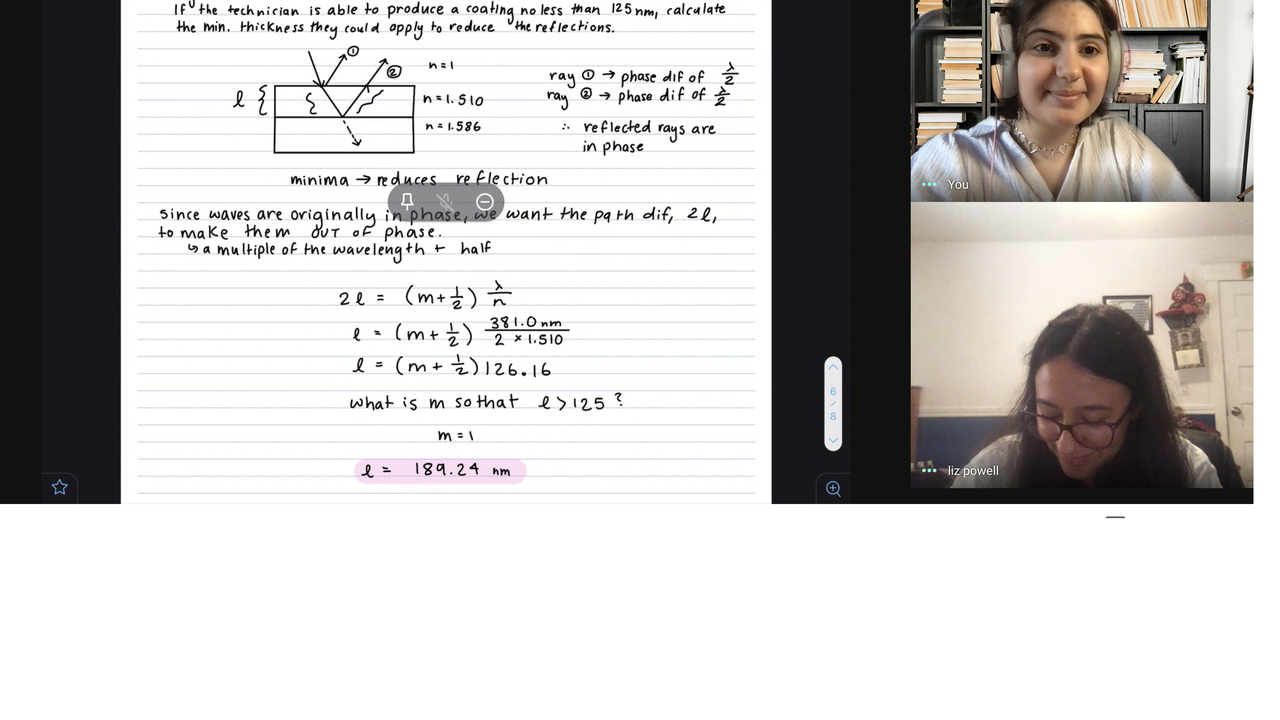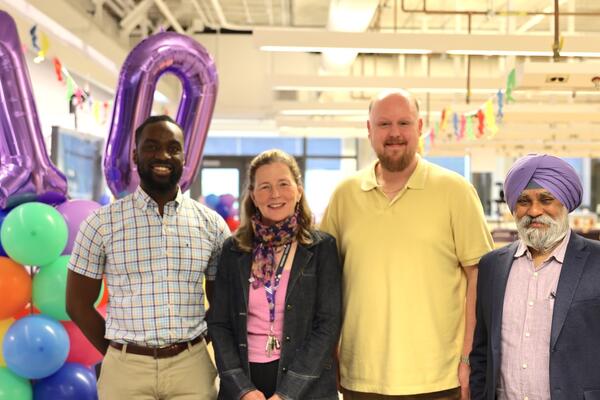
Free tutoring to improve academic outcomes
New program provides support to high school students during the pandemic

New program provides support to high school students during the pandemic
By Carol Truemner Faculty of EngineeringWaterloo Engineering is offering free tutoring to high school students across Ontario to help them succeed with remote learning during the COVID-19 pandemic.
The new program, known as Hive Mind, is aimed at Grade 10, 11 and 12 students who are struggling in advanced functions, calculus, chemistry and physics—all key subjects required to pursue post-secondary engineering programs.
Leanne Predote, senior manager of engineering's outreach department, says Hive Mind was launched earlier this year to help ensure students interested in pursuing a post-secondary STEM education would not be at a disadvantage because of the coronavirus restrictions to in-person classes.
“Many are struggling with digital divide issues and additional mental health stress and can’t learn as well in an online environment,” says Predote, a Waterloo alumnus who graduated from mechanical engineering in 2002. “Hive Mind gives them the one-on-one support they need right now.”
Angela Pause, senior writer with Engineering's advancement team and part-time student of Waterloo's Master of Business, Entrepreneurship and Technology (MBET) program, came up with the idea for Hive Mind late last year.
While working on an MBET assignment, Pause learned that during epidemics many girls' grades suffer or the young students drop out of school altogether because they assume more familial duties including sibling and elder care.
"One day you’re a high school student and the next day you are also looking after siblings who are now at home because in-person learning is cancelled," she says. “Women already have systemic barriers to entry in STEM programs and I didn’t want this pandemic to be one more obstacle standing in their way. I work in Canada’s largest engineering school where we have an amazing outreach team, so I figured we could find a way to help struggling students. “
Once her project was fleshed out with engineering outreach members, it received full support from many including Predote and Mary Wells, dean of Waterloo Engineering.
While available to all high-school students, Hive Mind is being run as part of Waterloo’s Women in Engineering (WiE) program, of which Predote is a member.
Students can register through the Hive Mind site for individual or group sessions with one of two Waterloo Engineering undergraduate students employed as learning assistants for their spring semester co-op work terms.
Since February, over 120 have registered for the program and 350 one-on-one sessions have been held.
Predote says response to the program has been “overwhelmingly positive,” with students commenting that the learning assistants were able to answer questions and provide explanations both clearly and concisely.
Many of the over 300 schools contacted about Hive Mind are in rural areas where there are generally fewer extra learning resources offered than in larger cities.
While established to fill a need caused by the pandemic, Predote says Hive Mind could be continued when students return to in-class learning.
“It’s in alignment with our outreach efforts,” she says. “We’ll evaluate it as we move forward but I think it’s definitely a worthwhile program to continue.”

Read more
Redefining capstone learning by bringing students, faculty and community partners together to tackle real-world challenges

Read more
Here are the people and events behind some of this year’s most compelling Waterloo stories

Read more
The Pearl Sullivan Engineering IDEAs Clinic marks a decade of delivering experiential learning embedded in the real world and mentored by industry professionals
The University of Waterloo acknowledges that much of our work takes place on the traditional territory of the Neutral, Anishinaabeg, and Haudenosaunee peoples. Our main campus is situated on the Haldimand Tract, the land granted to the Six Nations that includes six miles on each side of the Grand River. Our active work toward reconciliation takes place across our campuses through research, learning, teaching, and community building, and is co-ordinated within the Office of Indigenous Relations.